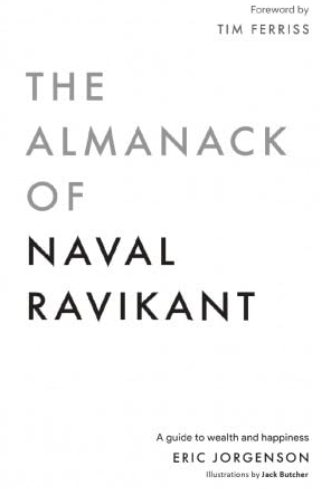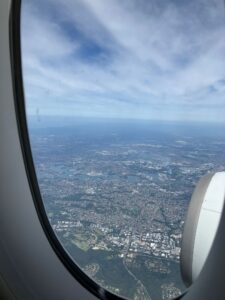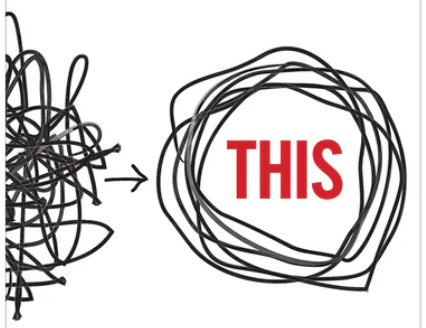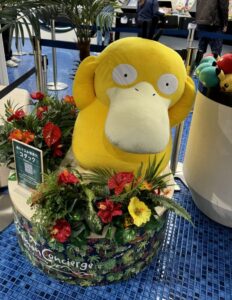The Almanack of Naval Ravikant: A guide to wealth and happiness by Eric Jorgenson and foreword written by Tim Ferris

5 most impressive ideas in this book
1. Reading (learning) is the ultimate meta-skill and can be traded for anything else.
My reflections:
Regaining the habit of reading has been immensely beneficial to my life, as it broadens my horizons and offers long-term advantages. Several books on personal finance, such as “Financial Freedom: A Proven Path to All the Money You Will Ever Need” by Grant Sabatier, introduced me to the concept of financial independence, retire early (FIRE). This concept has helped me understand how to manage and invest my money more effectively.
After delving into more books with relevant ideas and FIRE concepts, I began applying them to real-life situations. In 2020, I started investing in American index funds like S&P500 with my spare money, which didn’t compromise my quality of life. As my income became more stable in 2022, I continued to invest more. I am grateful for the knowledge gained from these books, as it has significantly enhanced my investment portfolio. Thanks to this, I have accumulated a considerable number of valuable assets in index funds.
Without the insights gained from reading, I wouldn’t have been able to secure better financial stability for retirement. Instead of leaving my cash in the bank to earn minimal interest each year, I have witnessed the power of the compound effect in action.

2. The most important trick to being happy is to realise happiness is a skill you develop and a choice you make. You choose to be happy, and then you work at it. it’s just like building muscles.
My reflections:
I contend that being happy is everyone’s own choice, and we can enjoy happiness step by step like building muscles. I felt happier when I spent more time on positive activities rather than being stuck in my negative thoughts. When I worked as a full-time registered nurse in the Surgical Ward of a hospital, I usually felt emotionally drained after work, either from patient care or from social pressure among colleagues. After realising this was a problem that could negatively influence my mental health in the long run, I started to set emotional boundaries when off duty. When hanging out with friends on my days off, we tried to talk about something not work-related or focus on the positive side of work because you couldn’t really deny those things happened. I also started my gratitude journal and put down content, such as compliment from patients and their families and how organised the nursing teamwork was for the shift on that day. Although I still encountered negative events on the ward, but I could use more positive attitude to see these events and learn from them. This method allowed me to rethink about a negative event, and I can choose a positive or a negative way of seeing the same event. When my negative thoughts were reduced, my happiness level increased. Thus, being happiness is really a choice.

3. Confucius says you have two lives, and the second one begins when you realise you only have one. When and how did your second life begin?
My reflections:
I believe that the second life is the one people want to live in their own way after realising they only have one. For me, I thought I had already started my second life in 2019 after working for five years and then leaving home to study and work abroad, but my real second life likely commenced in 2023 when I made the decision to resign from my full-time job in Australia. Supporting the concept, that I can only live my life once, as mentioned in the book “Die with Zero”, I looked back to my life and found that it might be kind of boring if I kept living my life in this way: working a full-time job with reliable income source, being able to buy a house within five years with savings from that income and retirement at 65 years old. When I thought about this again, I couldn’t find any other exciting elements in this lifestyle until retirement that could make me live my life to the fullest. I could waste my younger years with more energy and miss out on good opportunities to work elsewhere and explore more in my career. Additionally, having a mortgage on my back would limit my flexibility to travel whenever I wish. Therefore, with all potential considerations, I stepped out of my comfort zone again, like I did in 2019, and left my previous full-time work early this year. My second life then began, and I’m currently working as an agency registered nurse, allowing me to travel around Australia to explore more in my career. Although the income source is unstable when there is a lack of available nursing contracts, I have enough time to rest and explore other potentials in my life, such as writing content on this blog.
4. In any situation in life, you always have three choices: you can change it, you can accept it, or you can leave it.
My reflections:
It is true that I have choices in how to face any situation in my life: by changing it, accepting it, or leaving it. Before leaving home to study and work abroad in Australia, the atmosphere at home was often terrible due to my parents’ constant quarrels, shouting, malicious teasing and numerous hidden conflicts occurring almost constantly. The situation had been worsening over the years, despite my sister and I trying various ways to act as peacemakers. After realising that neither my sister nor I could really change this situation, as it is our parents’ lifelong challenge. Unless they are willing to address the issues by setting aside their pride, no one can truly help them. By understanding and accepting the truth, I reminded myself not to waste energy trying to control things I can’t change, especially my parents’ conflicts mentioned above. Instead, I spent more time for myself to make a plan for my lifestyle and career in Australia. Leaving home, knowing that I couldn’t change the situation, gave me the geographical space to reclaim my peace of mind. In the meantime, I adopted a better attitude towards my parents’ situation; that is, I learned to accept it. The only thing I have changed in this situation is my mindset. Vibe and conflicts themselves wouldn’t change, but my perspective on them could.

5. “I don’t have time.” “I don’t have time” is just another way of saying “It’s not a priority.”
My reflections:
Saying ‘I don’t have time.’ to things that really matter in life actually make people put them off subconsciously. I felt like I had no time to cook meals for myself to maintain a balanced diet or to get enough exercise while working my previous full-time job with plenty of overtime demands. From the beginning, I tended to leave time for cooking and doing exercise to the last until I regained energy. But few months passed, and I hadn’t even started a healthier diet and a workout routine. When looking back at these past few months, I realised that I spent about 3 to 4 hours on the phone after work every day. If I made better use of my time off and included these two important activities in my daily timetable instead of leaving them until last, I would have spare time for them. After gaining this insight, I started to plan ahead for the coming week and organise time for cooking and doing exercise, and it worked. I had time to go to supermarket and select fresh fruits and vegetables and cook balanced meals for myself. In addition, as a shift worker, I worked out a flexible routine to do exercise for at least three days a week. By prioritising things that matter in my life, I spent less time lamenting that I had no time to do them. Next time, saying ‘I don’t have time.’ to something that matters, I would stop and think again to make it possible to fit into my routine.

Other key points in this book
Happiness equals to the sum of health, wealth and good relationships. Health equals to the sum of exercise, diet and sleep. Sleeps here indicates no alarms, 8-9 hour sleep and circadian rhythms.
Happiness is the state when nothing is missing. When nothing is missing, your mind shuts down and stops running into the past or future to regret something or to plan something.

You have to view the negative before you can aspire to and appreciate the positive. Happiness is not about positive thoughts. It’s not about negative thoughts. It’s about the absence of desire, especially the absence of desire for external things.
Desire is a contract you make with yourself to be unhappy until you get what you want.

Easy choices, hard life. Hard choices, easy life.
The advantage of meditation is recognising just how out of control your mind is. It is like a monkey flinging faeces, running around the room, making trouble, shouting, and breaking things. It’s completely uncontrollable. It’s and out-of-control mad person.
You are more than just your habits. You are more than just your preferences. You’re a level of awareness. You’re a body.

[…] mentioned in the previous post, the habit of reading has long-term great impacts on my life, such as financial security, as I […]